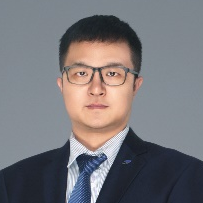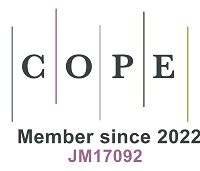Special Interview with Prof. José L. Domingo
On 16 May 2024, the editorial team of Journal of Environmental Exposure Assessment (JEEA) had the honor of interviewing Prof. José L. Domingo, a distinguished toxicologist and expert in environmental health, with Editorial Board member Dr. Rui Hou serving as moderator. Prof. Domingo, Emeritus Professor at the School of Medicine, Universitat Rovira i Virgili (URV), Spain, has made seminal contributions to toxicology and environmental health, founding key research centers and holding leadership positions in several prominent scientific journals.
Prof. Domingo's career in toxicology was profoundly influenced by the "toxic oil syndrome" outbreak in Spain in the early 1980s, which underscored the urgent need to investigate environmental and dietary contaminants. This pivotal experience guided his research toward in vivo toxicology studies, assessment of environmental pollutants, and evaluation of the health impacts of industrial facilities such as waste incinerators, cement plants, and landfills. Over time, his work expanded to include dietary pollutant exposure, providing critical data for human risk assessment and informing regulatory guidelines. Notably, he led the European research group with the highest output in classical toxicology and conducted pioneering studies on dietary exposure to polybrominated diphenyl ethers (PBDEs), laying the foundation for exposure limits and public health recommendations.
As the founder and Emeritus Director of TecnATox (the Environmental, Food, and Toxicological Technology Center), Prof. Domingo led a multidisciplinary team investigating food safety, environmental toxicology, radiotoxicity, neurobehavioral effects, and reproductive toxicology. Even after his official retirement, he continues to mentor PhD students, oversee research projects, and serve as Editor-in-Chief of Environmental Research. During the interview, he emphasized the importance of scientific and ethical rigor, high-quality peer review, and the strategic role of editorial boards in enhancing a journal's reputation, offering insights that are especially valuable as JEEA seeks to establish itself in the competitive academic publishing landscape.
Watch the video for Prof. José L. Domingo's expert insights.
Interview questions:
1. What was the defining moment that led you to your field?
2. As an outstanding expert, what are your greatest pleasures and scientific achievements?
3. As the Director of TecnATox, what was the goal in establishing it? What area(s) of research in TecnATox interest you the most right now?
4. You mentioned that you will officially retire in September this year. Could you share your plans after retirement?
5. JEEA is a new journal with aspirations to be indexed in the Web of Science (WOS). What suggestions or experiences would you like to share for our development?
Interviewee Profile

Prof. José L. Domingo is a distinguished toxicologist and expert in environmental health, currently serving as Emeritus Professor at the School of Medicine, Universitat Rovira i Virgili (URV), Reus, Catalonia, Spain. In 2006, he was honored as a Distinguished Professor by URV. He is the founder and former director of the Laboratory of Toxicology and Environmental Health and of TecnATox, the Environmental, Food, and Toxicological Technology Center, which specializes in research and technology transfer in food, environmental, and toxicological sciences. Prof. Domingo has held editorial leadership roles in several prestigious journals, including Editor-in-Chief of Environmental Research, Food and Chemical Toxicology, and Human and Ecological Risk Assessment. He is a member of numerous international scientific societies, such as the Society of Toxicology and the Society for Experimental Biology and Medicine. In recognition of his outstanding contributions, he was awarded the Eurotox Merit Award in 2023, becoming the first Spanish researcher to receive this honor.
Interviewer Profile

Dr. Rui Hou is a Professor at the School of Ecological Environment and Resources, Guangdong University of Technology (GDUT), China. His research focuses on the environmental behavior and ecological effects of emerging marine pollutants. Dr. Hou has led several major research projects, including those funded by the National Natural Science Foundation of China, the Guangdong Provincial Outstanding Youth Fund, and the Chinese Academy of Sciences Special Research Assistant Program. He has authored over 30 papers in journals such as Environmental Science & Technology, Water Research, and Environmental International. His contributions have been recognized with awards including the Youth Innovation Award for Emerging Pollutant Treatment from the Chinese Society of Environmental Sciences.
Editor: Tracy Sun
Language Editor: Catherine Yang
Production Editor: Ting Xu
Respectfully Submitted by the Editorial Office of Journal of Environmental Exposure Assessment







